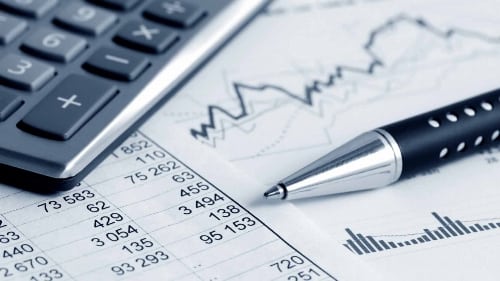By Craig Verdi, CFP®
“Don’t you think I should have a certain percentage in bonds? Everything I read says that I should have 20-50% of my money in bonds.” I hear these things all the time. And there have been good times to buy bonds. As I write this it is the end of April, 2015. The yield on the 10 year Federal Treasury bond is at 1.9%. The yield has historically been much higher. When has it been this low? Almost never.
Even my hero Benjamin Graham said that investors should always keep some in bonds and when stocks rise they should take profits and put them in bonds. When he wrote those things the yield on 10 year Treasuries were 3-5%. If you could get that now, I may advise the same thing. He also wrote that the main reason for doing this was to keep investors occupied, give them something to do to take their minds off of the stock market! I like that advice. But with rates this low, as an investment advisor I would warn against it.
I have thought rates will go higher from some time. No need for me to guess since I am not in bonds. Can bonds crash? Yes they can! Are they safe? Let’s look briefly on how bonds work.
I went to the internet to find an easy explanation for bonds. There are none. So, here goes. I think doing this as a FAQ’s will work.
What are bonds? Bonds are just loans. The issuer may be a government or another entity like a corporation. You give them money, they pay you a fixed interest rate.
So when you hear about a “debt portion” of a portfolio it is typically bonds. Bonds are also called “fixed income” which is a more widely used term and sounds better than “debt.” You will more often hear someone say you have too much or too little in “fixed income.”
Bonds are usually $1000 each. For now we will assume they all are $1000.
If you buy a 10 year bond today with a yield or “coupon” of 2% you will get paid $20 per year
Q: What if I don’t want to wait 10 years, say I sell in 5 years? You can cash out in five years.
Q: How much will I get if I cash out before the ten years are up? Good question. It depends on what interest rates are when you cash out.
Q: What if rates are higher when I cash out? This part is counter-intuitive. Many people would guess that rates going up would be good, but they are not. Why? Because your bond pays 2% and if the bonds five years in the future pay new investors 4%, who wants your bond? No one because they can get new ones at 4%.
Q: So how do I cash out? You cash out to the highest bidder and since that bidder can now buy a 4% bond you need to “sweeten the pot” and offer your $1000 bond at a discount. Say for instance $900. Make sense?
Now let’s change the future five years out. Let’s say that rates have fallen to 1%. Now who wants your bond? Everyone, because they can only get 1% on the new ones. So how do you sell you bond now? This is great! You can ask for a premium price for your bond! Since everyone else has to buy new bonds at a 1% yield and you are holding one that pays twice as much you are in the money! You may, for instance, get $1100.
How much could I lose? It is hard to say, since bonds are driven by buyers and sellers. However if we look at a make believe bond I think you may get the idea. Say I put $100,000 this morning into a 30 year bond with a 3.5% yield. This afternoon rates go up to 7%. That will probably never happen, but if it did, we would estimate the fair price of your bonds at $50,000. And you will be stuck for 30 years at that rate. So, yes there is considerable risk. And what do you get in return? A lousy 3.5%. No ownership, just 30 years of loaner-ship.
So the question becomes, “should I invest in bonds?” You should think about putting money in bonds at times. If you need income from the bonds, you may consider individual bonds. The time to buy bonds is when the yield on the bonds at the time is higher than the rate of inflation minus taxes you would pay on the bond interest. We look at the 10 year Treasury as a barometer of bond rates. If the yield is above the long term inflation rate, I may be a buyer. I am personally almost 100% out of bonds and our clients have very little in bond holdings.
Again, bonds have been in a bull market (falling interest rates) for as long as most of us can remember. They are at astoundingly low yields, lower than we have almost ever seen.
The purchase of bonds is subject to availability and market conditions. There is an inverse relationship between the price of bonds and the yield: when price goes up, yield goes down, and vice versa. Market risk is a consideration if sold or redeemed prior to maturity. Some bonds have call features that may affect income.Investments are subject to risk, including the loss of principal. Because investment return and principal value fluctuate, shares may be worth more or less than their original value. Some investments are not suitable for all investors, and there is no guarantee that any investing goal will be met. Past performance is no guarantee of future results. Talk to your financial advisor before making any investing decisions.


